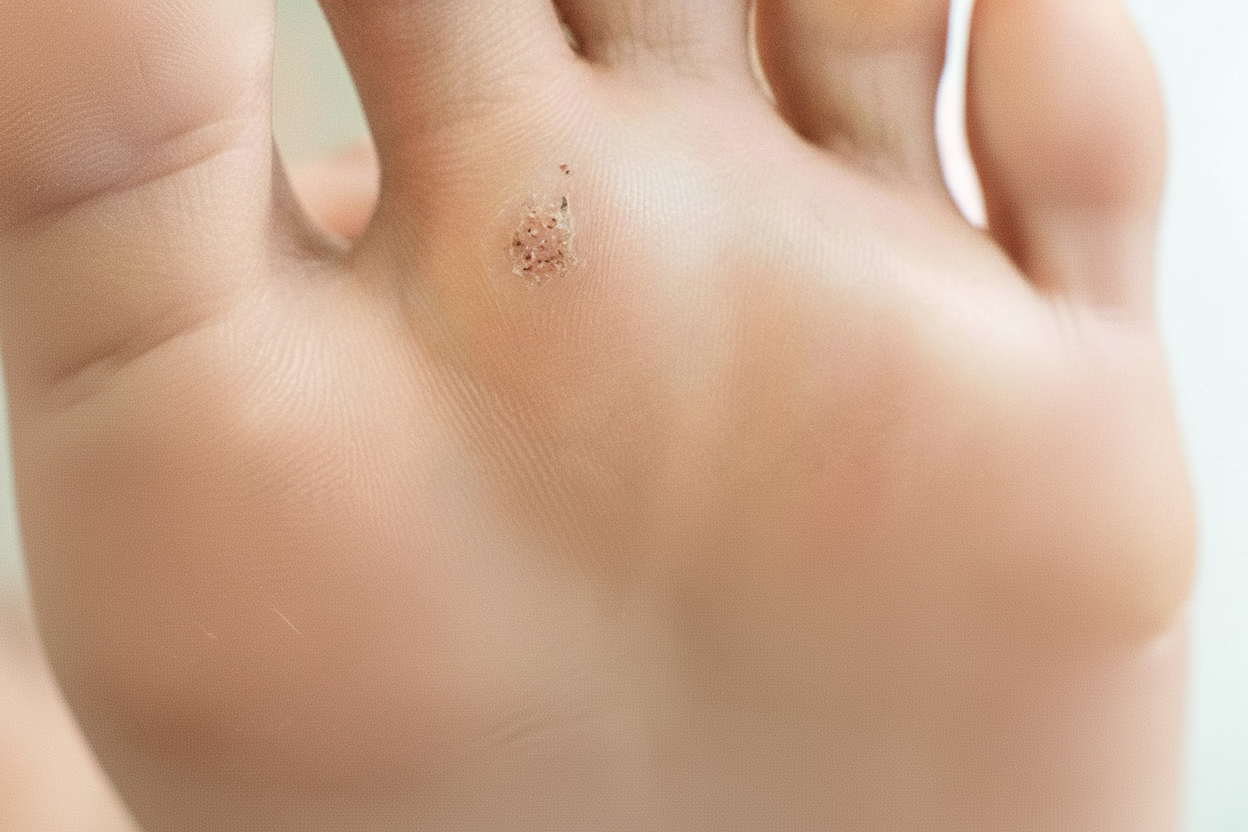Plantar warts are small, hard growths that develop on the soles of the feet as a result of a viral infection. Caused by certain strains of the human papillomavirus (HPV), these warts often appear on weight-bearing areas like the heel or ball of the foot, making them especially painful. While over-the-counter remedies may provide temporary relief, plantar warts can be stubborn and return if not treated effectively. Our practice offers advanced, minimally invasive treatments that target the virus, relieve pain, and help prevent recurrence.

Yes. They can spread through direct contact or by walking barefoot on contaminated surfaces such as locker room floors or pool decks.
Some warts may eventually resolve without treatment, but this can take months or even years. Professional care removes them more effectively and prevents spreading.
Options include salicylic acid, cryotherapy, laser therapy, and other minimally invasive procedures that destroy wart tissue without surgery.
They can, especially if the virus remains in the skin. Advanced treatments that target the root of the infection help reduce recurrence.
Wear sandals in public showers, keep feet clean and dry, avoid sharing shoes or socks, and treat small cuts promptly to reduce infection risk.
If a wart is painful, spreading, or not responding to over-the-counter care, it’s time to see a specialist. Patients with diabetes or weakened immune systems should seek care immediately.